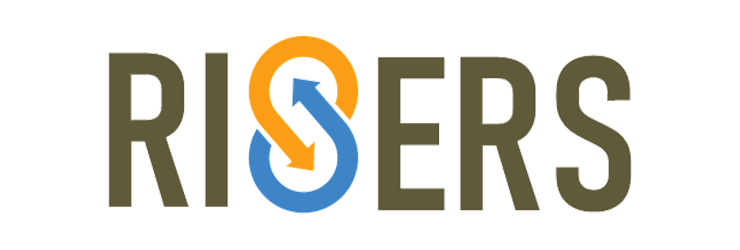RISERS
A Roadmap for Industrial Symbiosis Standardisation for Efficient Resource Sharing

Mapping of Technical Committees to priority resources and sectors
The interactive graphic shows the mapping of all around 800 international and European Technical Committees (TCs) to the most important sectors for industrial symbiosis (IS). The second circle sorts the TCs by a roughly estimated relevance for industrial symbiosis. TCs which are well connected to one of the sectors have a high or very high estimated IS relevance.
Please choose the sector of interest to see the TCs. Please hover over the TCs to see the further information.
Industrial symbiosis is essential on the road to greater sustainability, efficiency and resource conservation. It is a form of co-operation between different industries and sectors that improves resource productivity by sharing waste, by-products, energy, water, infrastructure, and other resources.
Despite its obvious advantages, industrial symbiosis is still not very widespread for various reasons when it comes to building sustainable industries. The processes for developing symbiotic relationships are complex, the opportunities often lie outside of one sector, often involve large players without the involvement of SMEs and require the participation of many stakeholders. Therefore, the cross-sector standardization is crucial for overcoming the main barriers to industrial symbiosis to ensure that materials and products are interchangeable, and the systems and processes used are compatible and efficient.
The aim of RISERS is to develop a roadmap for the standardization of industrial symbiosis in order to promote the efficient use of resources. The roadmap defines areas and directions where standardization is required and proposes measures to drive forward industrial symbiosis. To achieve this, the most important elements are:
- Comprehensive review of the standardisation landscape
- Definition of the most important synergies and resources for RISERS
- Identification of opportunities for synergies within and between sectors
- Underpinning the procedures and prioritisation with the current state of research
- Engagement, collective knowledge and experience of experts from different sectors including industry, politics, academia and standardization bodies.
The project is based on the CEN workshop agreement (CWA 17354) “Industrial Symbiosis: Core Elements and Implementation Approaches”, which was published by the European Committee for Standardization (CEN). It provides a consensus on the core elements of the industrial symbiosis and best practices for the implementation in Europe and beyond.
CEN and DIN are leading the development of the standardization roadmap within the project.
For further information please see: https://risers-project.eu/ and https://cordis.europa.eu/project/id/101135539
Project duration
11/2023 – 12/2026
Project coordination
- Enspire Science Ltd. (Israel)
Project partners
- Comite Europeen de Normalisation (Belgium)
- DIN Deutsches Institut für Normung e. V. (Germany)
- Eit Raw Materials GmbH (Germany)
- Fraunhofer Gesellschaft zur Förderung der angewandten Forschung e. V. (Germany)
- Universität Gent (Belgium)
- Instytut Ekologii Terenow Uprzemyslowionych (Poland)
- Instituto de Soldadura e Qualidade (Portugal)
- International Synergies Ltd. (UK)
Project funding

Funded by the European Union. Views and opinions expressed are however those of the author(s) only and do not necessarily reflect those of the European Union or of the European Health and Digital Executive Agency (HADEA). Neither the European Union nor the granting authority can be held responsible for them.